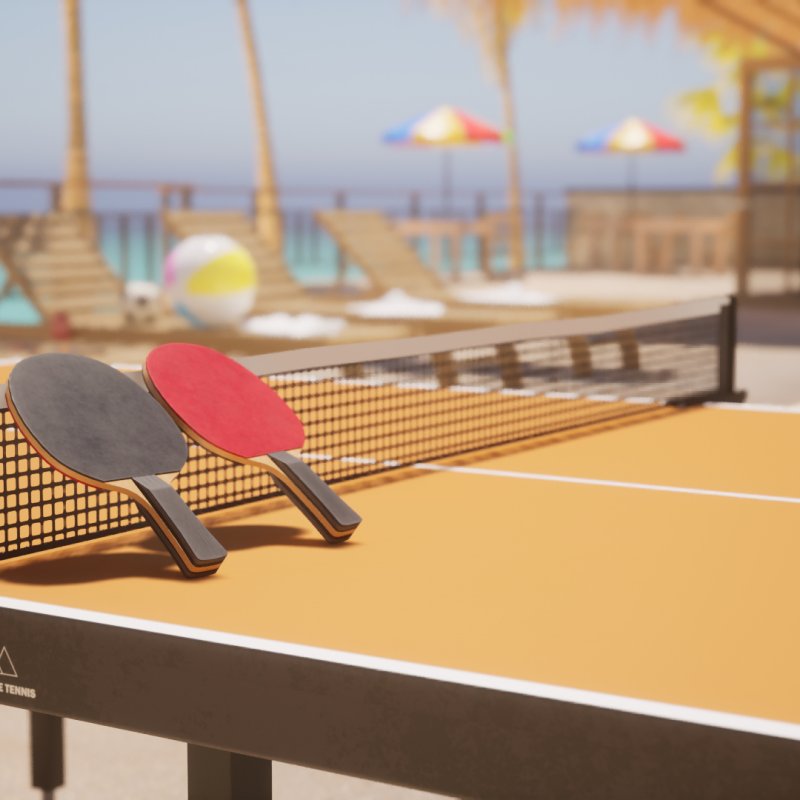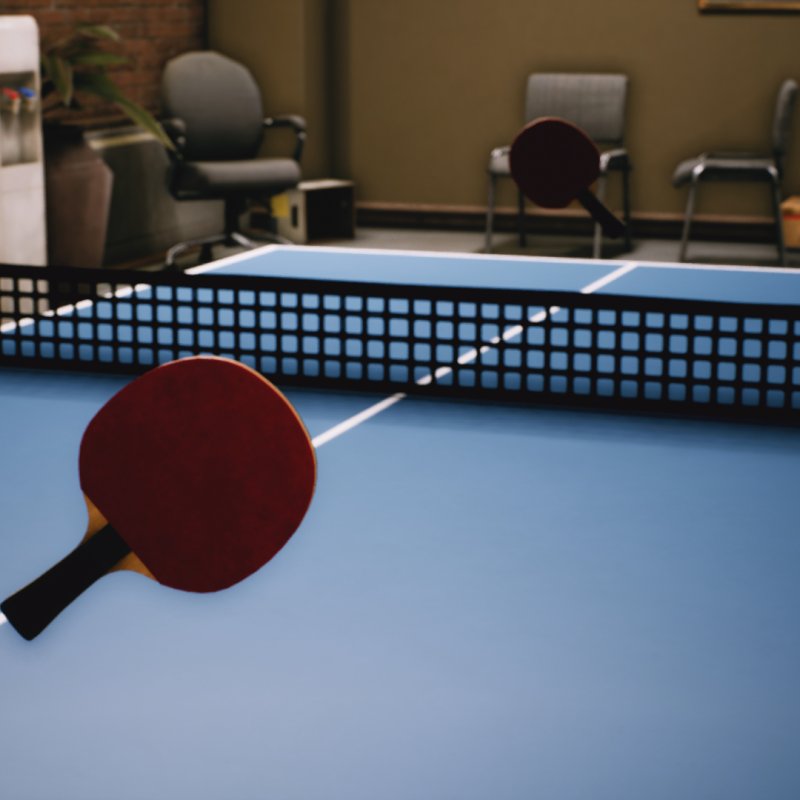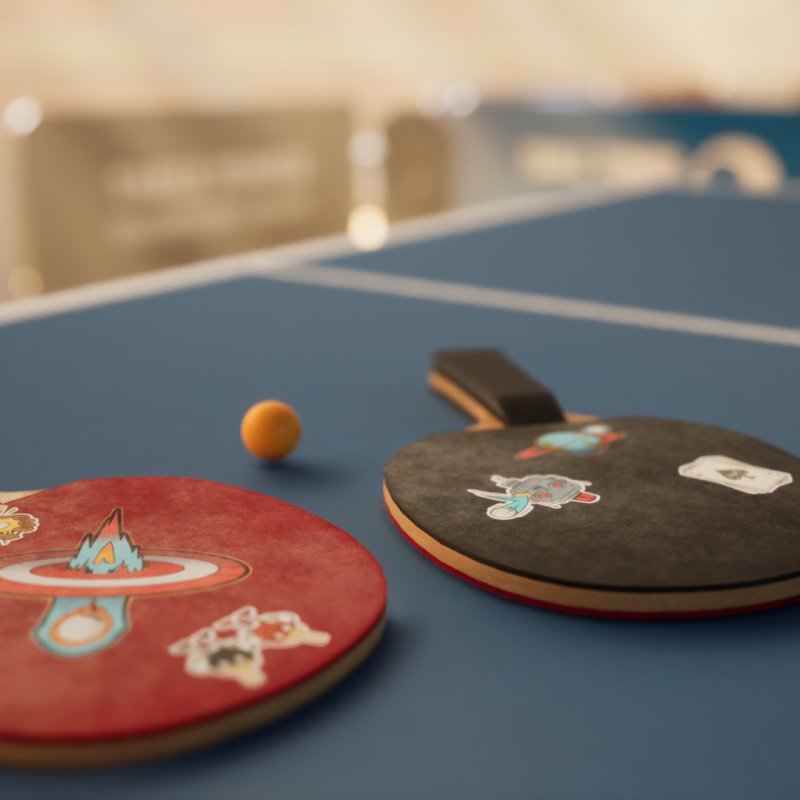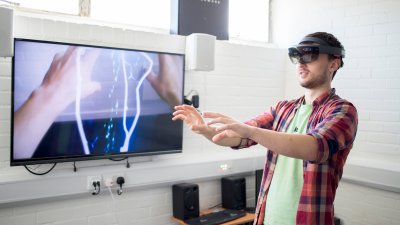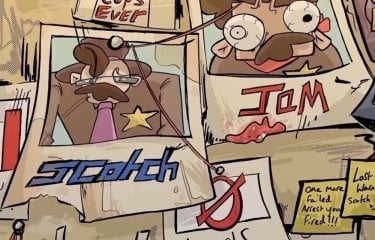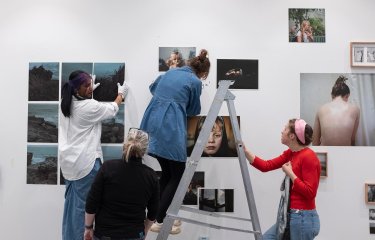Games Academy alumni release their latest game on Nintendo Switch
07 June 2024
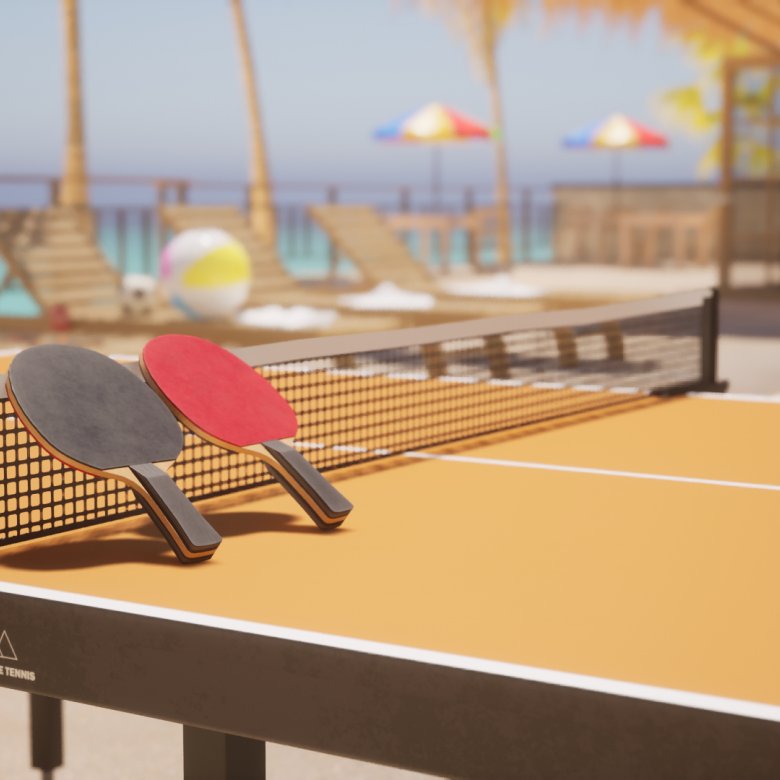
Studio 316, a Cornwall-based games studio which comprises of five former Falmouth University Games Academy students has released their latest Nintendo Switch title, Tip Top Table Tennis, in collaboration with Excalibur Games.
The game follows on from Seagrass Ranger, an educational title created for The Eden Project, and immersive rowing application, ImersU Row. Their new title offers dynamic motion controlled table tennis gameplay with local multiplayer support with unique physical paddles.
Co-Founder and CEO of Studio 316, Joe Clark (a Game Development: Design BA graduate), also spoke at our recent Games Expo event, talking about how the business has developed since he and his fellow teammates graduated.
Tip Top Table Tennis is a standalone table tennis game to the Nintendo Switch which takes on some of the feel of Wii Sports games. It took the team around seven months to make and started with two weeks of scoping out the Switch environment to start developing. “The team had to do a bunch of research and new learning to get used to the Switch functionality,” says Joe, who graduated from the course in 2021.
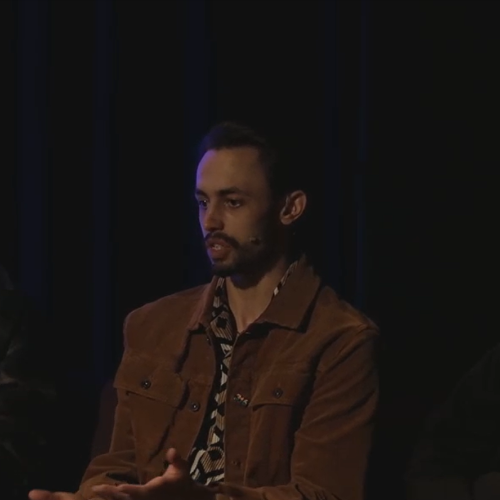
“Key challenges in the build, other than getting to grips with the Switch environment, were scoping out the game, cutting away smaller features and almost a month of back and forth with platform submissions with Nintendo."
"It was our first Switch game so we learned a massive amount that we can take forward onto other projects. We also had up to three other projects of various sizes on the go at once, which was a real challenge for a fledgling business.”
- Joe Clark, graduate
The game was created in Unreal Engine 5 and the team wrote a blog series that documents their build. These posts discuss the many firsts the team encountered on the development journey that the team hope will be the firsts of many.
We asked Joe about his time at Falmouth, and how it prepared him for life beyond university.
What are the main skills/experience from your degree that you use on a daily basis?
The course sets you in good stead for team-based working environments that are essential for collaborative studio working. There are many theories and practical skills that the team and I still use on a basis such as agile practices and team-based principles/workflows.
Does it help that the team all had similar experiences studying at Falmouth University together?
The team all had different specialisms within gaming, like art, programming, sound, etc. which although come under the gaming umbrella are actually quite diverse. Bringing all these skills together in team projects is a key part of the games courses, and it really prepares you well for work in the development studio. It was shared experiences on a group project that took us right though to starting Studio 316.
What was the most unexpected thing about studying Game Development at Falmouth?
I’d never studied game development previously, so I went in blind with little in the way of expectations. What was great was the Games Academy building itself which has over 400 high-end computers and a whole host of other technologies at your disposal. With a space full of creative people that big, there are loads of interesting conversations and ideas all around which of course has its benefits.
The university also hosts the Global Game Jam, which creates a real buzz of creativity and collaboration for 48 hours every year.
Also as an aside, we’ve taken on a number of part time and freelance staff since our inception and you can really notice the difference in developers from Falmouth. Courses at the other universities, in our experience as a business, often don’t bake in the team working environment to all years of study and it really shows.
Who would you recommend game dev at Falmouth to?
I’d recommend the course at Falmouth to anyone looking to experience the best representation of working in the games industry as possible and gain industry standard knowledge, as it really sets you up for a job beyond graduation. As mentioned, the course is geared towards team-based projects in all years but you can also work individually on projects if you prefer.
Another key feature of studying at Falmouth is the influence and resources of performing arts, arts and music courses that the university specialises in.
What does the future look like for you and Studio 316?
We’re working on our own game using grant funding from the UK Games Fund. We’re looking to find a publishing agreement and release the game in the next year or two.
Can you tell us more about the upcoming project?
It’s a co-op multiplayer, post-apocalyptic delivery simulation game where the user takes the role of an apocalypse survivor who finds a business opportunity in becoming a postie, in the apocalypse. Gather up to four friends, build your rig, scavenge for supplies, and create your post apocalypse delivery team to navigate the wastelands.
You can keep up with Joe and his Studio 316 team via their website where you can sign up to their monthly newsletter. They also have Twitter and LinkedIn profiles at the links below:
